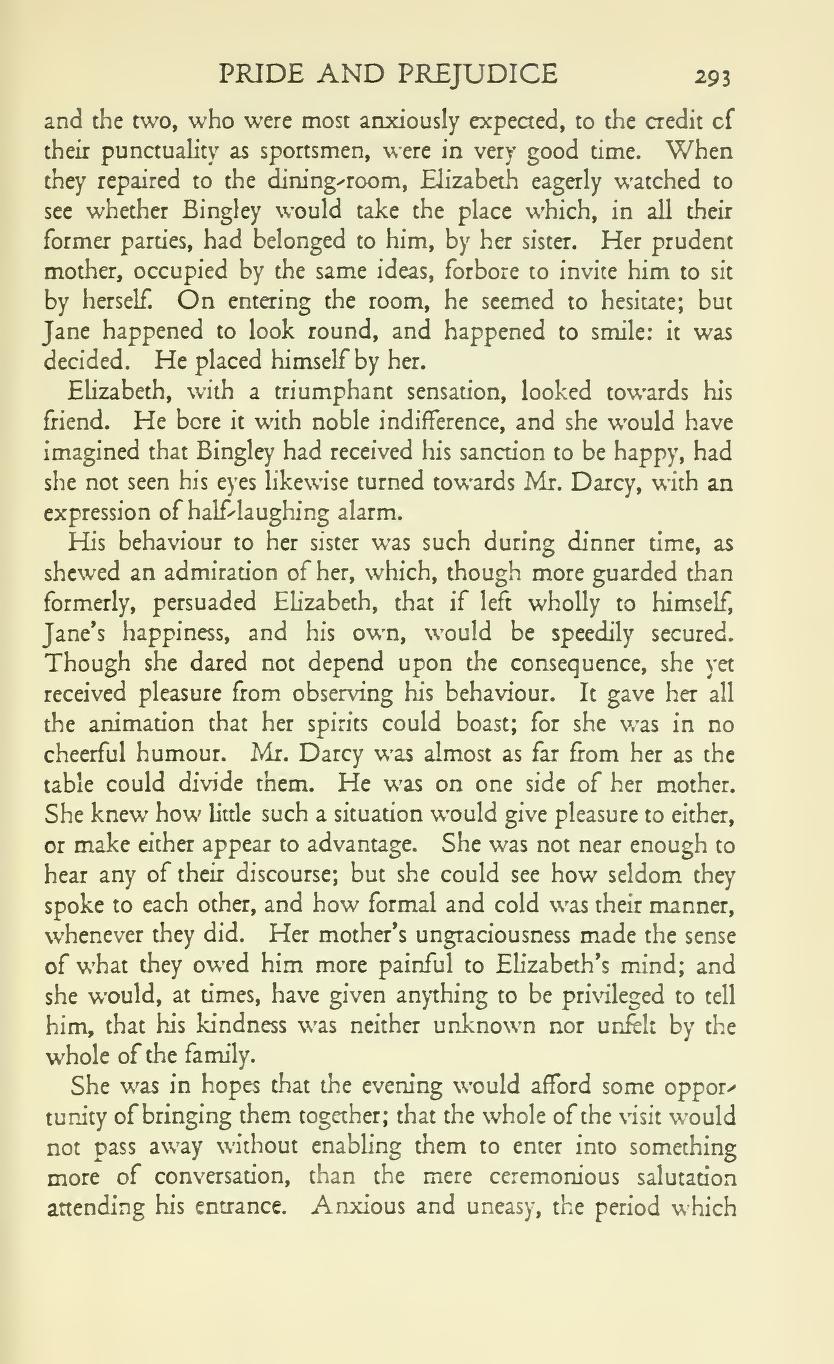 ............prev.....................next
............prev.....................next{{prxprp293.jpg}} || PRIDE AND PREJUDICE 293 ||
and the two, who were most anxiously expected, to the credit cf
their punctuality as sportsmen, were in very good time. When
they repaired to the dining-room, Elizabeth eagerly watched to
see whether Bingley would take the place which, in all their
former parties, had belonged to him, by her sister. Her prudent
mother, occupied by the same ideas, forbore to invite him to sit
by herself. On entering the room, he seemed to hesitate; but
Jane happened to look round, and happened to smile: it was
decided. He placed himself by her.
Elizabeth, with a triumphant sensation, looked towards his
friend. He bore it with noble indifference, and she would have
imagined that Bingley had received his sanction to be happy, had
she not seen his eyes likewise turned towards Mr. Darcy, with an
expression of half'laughing alarm.
His behaviour to her sister was such during dinner time, as
shewed an admiration of her, which, though more guarded than
formerly, persuaded Elizabeth, that if left wholly to himself,
Jane's happiness, and his own, would be speedily secured.
Though she dared not depend upon the consequence, she yet
received pleasure from observing his behaviour. It gave her all
the animation that her spirits could boast; for she was in no
cheerful humour. Mr. Darcy was almost as far from her as the
table could divide them. He was on one side of her mother.
She knew how little such a situation would give pleasure to either,
or make either appear to advantage. She was not near enough to
hear any of their discourse; but she could see how seldom they
spoke to each other, and how formal and cold was their manner,
whenever they did. Her mother's ungraciousness made the sense
of what they owed him more painful to Elizabeth's mind; and
she would, at times, have given anything to be privileged to tell
him, that his kindness was neither unknown nor unfelt by the
whole of the family.
She was in hopes that the evening would afford some oppor^
tunity of bringing them together; that the whole of the visit would
not pass away without enabling them to enter into something
more of conversation, than the mere ceremonious salutation
attending his entrance. Anxious and uneasy, the period which
[[293]]